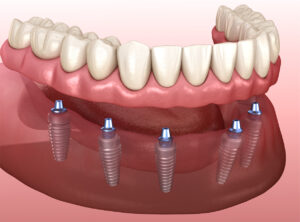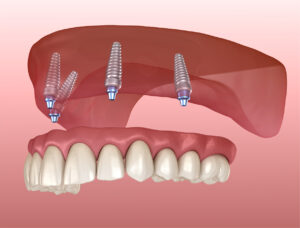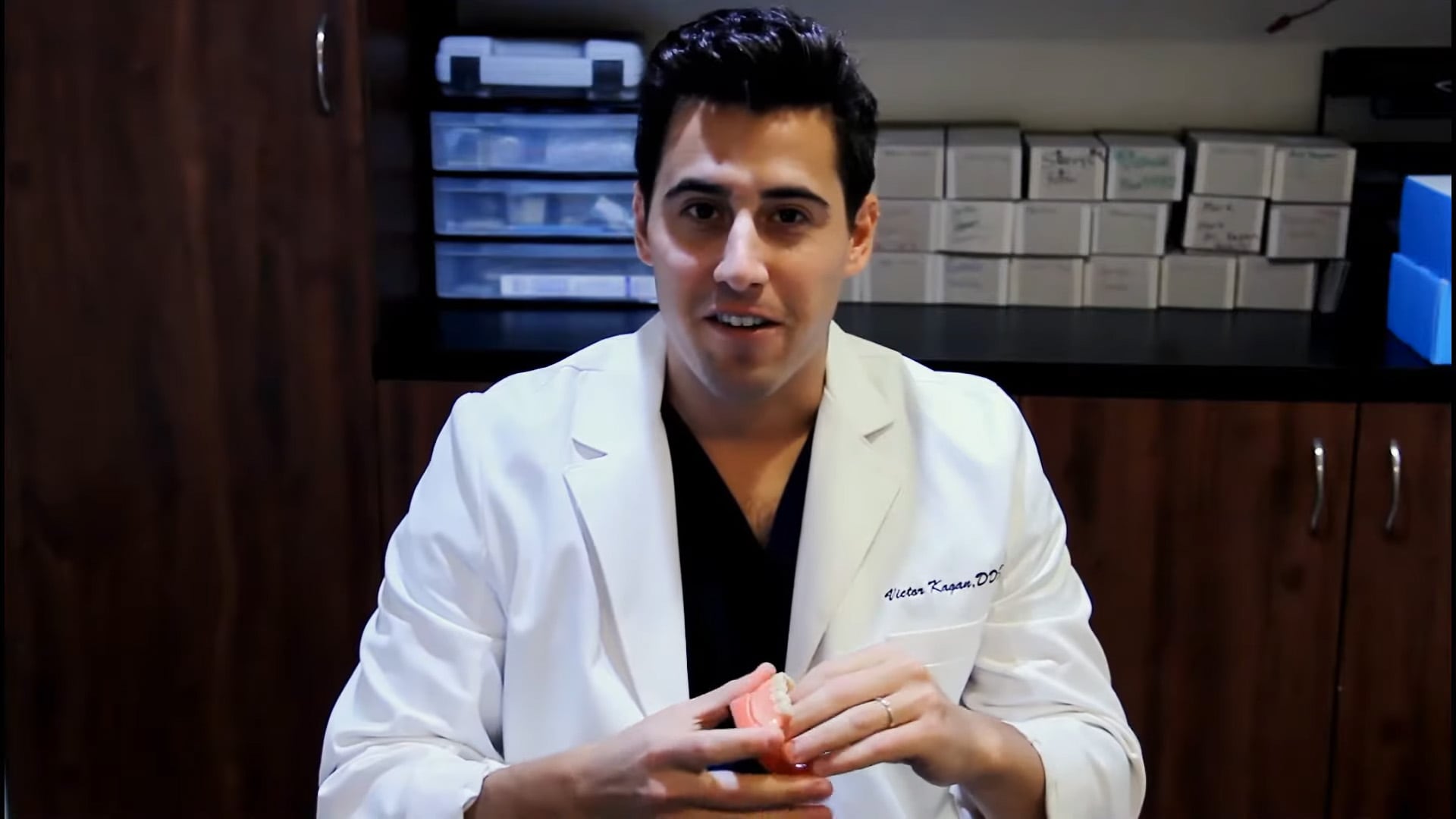How is the Implant Denture Procedure Performed?
Procedure details vary according to each person’s needs and unique treatment plan, but the process of getting implant dentures generally involves multiple stages to give patients a secure, long-term solution for their missing teeth.
During a thorough consultation, our multispecialty dental team utilizes x-rays and digital imaging to precisely assess bone quality and determine the ideal placement for your dental implants. At the time of surgery, small titanium posts are placed into the jawbone, serving as artificial tooth roots that will anchor the denture. Over the next several months, these implants fuse with the bone through a natural process called osseointegration, creating a strong and stable foundation. Once the implants have fully integrated, custom abutments are attached to connect the implants to the denture. The final stage involves securing a custom-crafted denture to your implants, creating a secure and fully functional restoration. The result is a healthy dental arch that looks, feels, and functions much like natural teeth, restoring comfort, chewing ability, and confidence.
Implant-Supported Dentures Options
At Oelbaum & Kagan Dentistry, we offer several types of implant-supported dentures so you can select the option that best meets your needs.
Traditional Implant-Supported Dentures
Implant-supported dentures can reconstruct the upper dental arch, lower dental arch, or both dental arches for restored chewing function. The number of implants utilized varies depending on the level of bone density available. With implant dentures, patients can eat and speak with more security and confidence than traditional dentures attached with adhesives.

All-On-4® Anchored Dentures
All-On-4® refers to a cutting-edge technique that places dental implants at strategically placed angles, allowing patients to achieve a secure, stable denture with only four to six implants. Not only can this restore your smile and ability to bite, but All-On-4® also minimizes the need for a bone graft.

Implant Bridges
If portions of your natural teeth are still in good condition, you may only require an implant bridge to renew your smile. Like implant dentures, an implant-supported bridge is designed to affix a custom restoration into your jawbone for enhanced stability. This can replace several consecutive missing teeth at once, literally bridging the gap between healthy teeth.

During the consultation process, your dentist will discuss the unique advantages of each type of implant-supported denture and help you decide which treatment plan can achieve your goals.
How Long Will Implant-Supported Dentures Last?
Once fully integrated with your jawbone, implant dentures are intended to function like a natural part of your mouth. Therefore, the lifespan of dental implants is often comparable to the longevity of your natural teeth. If you do not keep up with daily oral hygiene or undergo regular dental exams to monitor the state of your oral health, your teeth and gums are more likely to be weakened by decay. Poor oral hygiene habits can similarly compromise the security of your dental implants, with bacteria buildup in the mouth considered among the top reasons for implant failure.
With consistent brushing and flossing, as well as semi-annual professional dental cleanings, implant dentures can last for 10 to 20 years or longer. These results greatly outlast the outcome of traditional dentures, which generally only last 5 to 10 years as the jawbone continues to recede. Unlike prostheses that simply sit on top of the jawbone, implant dentures are designed to strengthen the underlying bone, allowing them to last indefinitely with proper oral hygiene.



